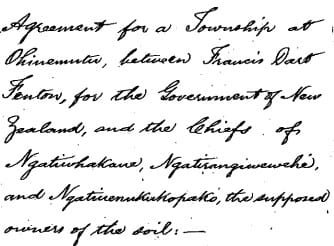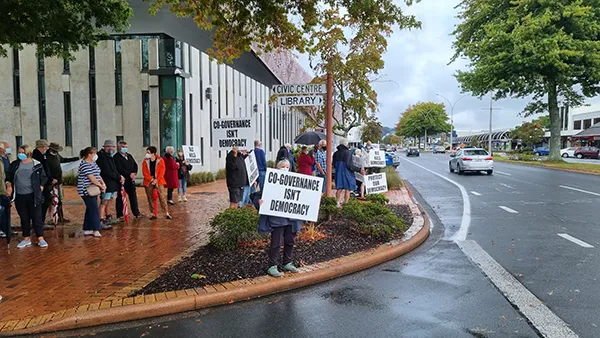Table of Contents
Makeha Paori
Racism and hypocrisy are stepping up another level with the attack on voters in Rotorua. The value of a Pakeha vote will be reduced to 58% of a Maori vote.
Ardern’s government is justifying this attack with unwritten “Treaty principles” about partnership. This is astonishing because Rotorua was founded with its own treaty – the Fenton Agreement.
History is clear. Rotorua was never a Maori town. It was created on 25 November 1880, near the Maori village of Ohinemutu. Chief Judge Francis Dart Fenton of the Native Land Court negotiated an agreement with three local tribes to set aside land for a European town, and he is remembered with the naming of Rotorua’s main road, Fenton Street.
European travellers came to Ohinemutu to bathe in the thermal springs and see the famous Pink and White Terraces. Local Maori wanted a slice of the tourist dollar but could not get investment for hotels, restaurants, and souvenir shops. This was not due to institutionalised racism by banks, but the fact that investment needed security, such as a mortgage on land. The locals did not want to sell land, so the banks could not lend to investors.
Fenton’s solution was to arrange leases to investors, administered by the Crown on behalf of Maori, with land for core town infrastructure (such as a watercourse) to be gifted by Maori to the Crown. This would give enough security for Pakeha to build a new settlement to support the tourism possibilities, and provide Maori with some income.

The hand-written treaty covers 16 clauses over 7 pages. It sets out the area for the new township and its administration. For example, Clause 7 reads “As soon as the Town is of sufficient importance, a Resident Magistrate, appointed by the Government, is to be stationed here…”
More importantly for the current issue, Clause 9 reads “The Maroies (sic) shall not trouble the European leassees…” and Clause 15 reads “All licensing fees and rates are to be expended for the benefit and improvement, and the planting the reserves of the Town…”
The principle of this treaty is clear. There is no basis for Maori to have any vote on the Rotorua council. Not a cent of any rates should be used for Maori programmes.
Just 6 years later, on 10 June 1886, Mount Tarawera erupted. The Pink and White Terraces were destroyed and the surrounding land was devastated. Tourism and investment ceased overnight. Nobody wanted the leases, and the local tribes had no income. Faced with losing their land over other debts, they worked with the Crown from 1889 to convert leases to freehold titles for sale. This was only possible with ongoing Crown investment in the town to give it value.
A century later Ngati Whakaue claimed this deal was a breach of the Treaty of Waitangi, arguing they were forced to sell and earned a settlement despite the massive economic benefits local Maori had gained from the Crown’s investment over that time.
Why uphold one treaty but not the other?
The Fenton Agreement can be studied here:
http://rotorua.kete.net.nz/documents/0000/0000/0211/FENTON_AGREEMENT_ENGLISH_TRANSLATION.pdf









